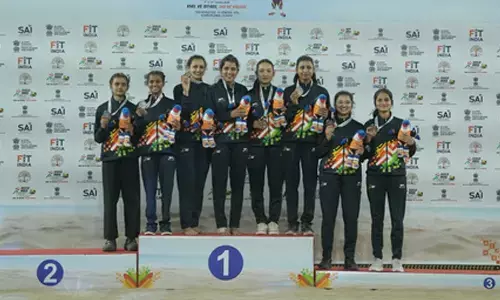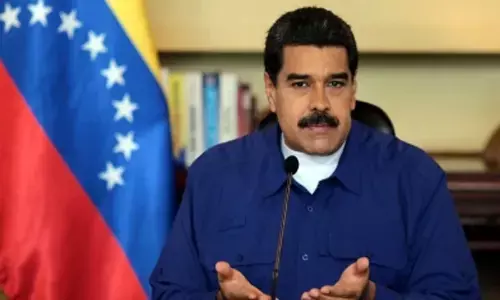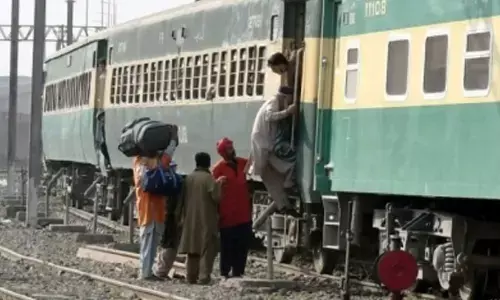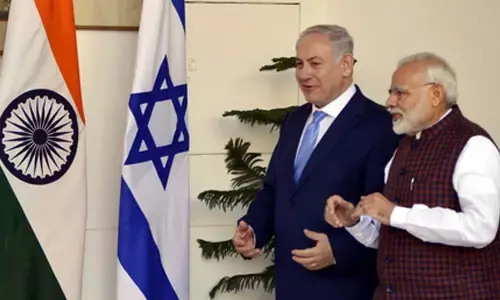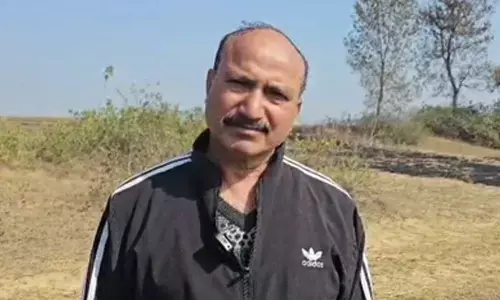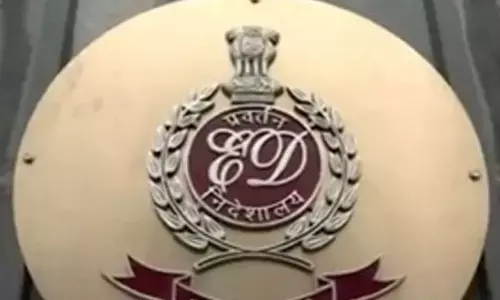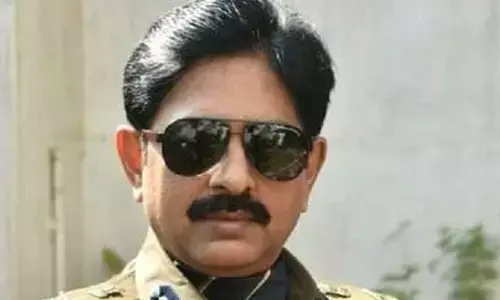Bengaluru: Women demand free travel in BMTC buses
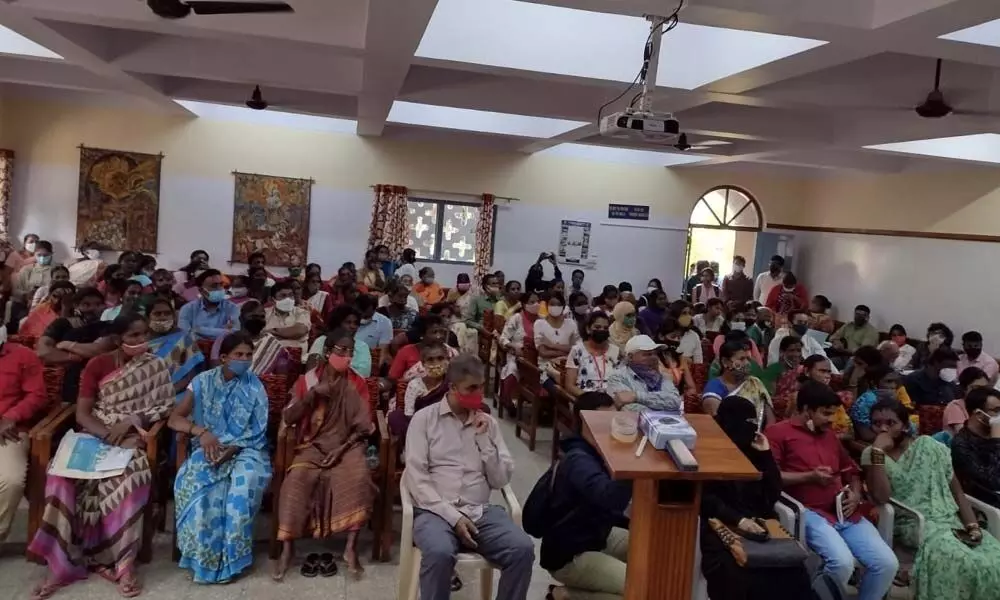
Women demand free travel in BMTC buses
Bengaluru Bus Prayanikara Vedike (BBPV) organised a public hearing on Tuesday, on the “Affordability of the Bangalore Metropolitan Transport Corporation” (BMTC) bus service for common people.
Bengaluru: Bengaluru Bus Prayanikara Vedike (BBPV) organised a public hearing on Tuesday, on the "Affordability of the Bangalore Metropolitan Transport Corporation" (BMTC) bus service for common people. Women working in different sectors have demanded that they be allowed to travel free on BMTC buses in Bangalore, similar to Tamil Nadu, Punjab and Delhi.
The hearing witnessed participation of more than 100 citizen, mostly women workers and students on a weekday amidst a representative jury of experts from the citizenry, academia and government with Dr Ashish Verma, professor at IISc, Cynthia Stephen, social activist, Manu Mathai, professor at Azim Premji University, Sowmya Reddy, MLA of Jayanagar constituency and Tara Krishnaswamy, co-founder of Citizens for Bengaluru on the panel.
The agenda of the hearing was to decide upon the case for reducing bus ticket and pass fare alongside making BMTC buses free for women commuters. The jury would conclude upon this based on testimonies from various representative groups of the citizen diaspora ranging from representatives of unions for slums, pourakarmikas, street vendors, sexual minorities and students. The participants came from all corners of the city: Laggere, Channasandra, Anekal, Ragigudda, Magadi road, Chandapura, Maruthiseva nagar inter alia.
BMTC being the sole mode of public transport with coverage spanning across the city more or less is unaffordable to many people in the city and its fringes. Metro being out of question given its limited accessibility as well as even higher fares than those of buses.
For instance, Nagamani, a resident of Chandapura. a farmer who frequently visits city market to sell her produce, stated that she was charged 50 rupees more for her produce bundles in the bus apart from her ticket fare. Manjula, a mother of three children and a domestic worker by occupation, stated that she spends Rs 1050 a month on the bus pass from a monthly income of 5000 (21% of her monthly income).
With infrequent and unreliable bus service, the citizens narrated how they have to expend on auto-rickshaws for entire trips as well as a minimum fare of Rs 50 one-way for first and last mile connecting trips to bus stops. This is a sizeable amount considering the salary of a low-income household which could consume a lower bound of Rs 2000 rupees on an average.
The low-income households are often pushed to the peripheries of the city or are even resettled like the Hakki Pikki tribe who have now been resettled near Kengeri after being cleared off from forest lands in Bengaluru and face difficulty in commuting to the main city to vend. Similarly, students and workers living in Anekal have complained about the lack of buses serving there making not a value for money to even purchase the pass as buses ply at a frequency of 30 minutes affecting students' class time and workers' day wages if they reach late compelling the residents to take auto-rickshaws.
The lack of affordability and accessibility to the buses also led to many girls dropping out from schools. The student passes are also route based and cannot be used by students to travel for other trips reducing their access to the city and leisure too.
Sexual minorities face both taboo while using the service and have limited earning sources thus are faced with affordability issues as well. Many of the community members are HIV positive and have to make frequent hospital visits leading to additional burden.
Covid-19 has distressed these citizens further, some of whom cited their incomes have fallen by half.
There were other significant issues on bus accessibility that were raised such as the issue of sexual minorities feeling unsafe or uncomfortable to board buses, children who usually commute with student passes being forced to get down the bus as they crowd the bus at peak hours of school based commute and the conductors cannot get ticket money from them which is a known malpractice in the city of conductors not returning change to commuters upon ticket fare. Women's safety both inside the bus and to approach the bus stop was raised.
Based on these testimonies, the jury members made strong recommendations on the next steps that could be taken up by both the citizenry as well as the government in the forthcoming budget session in the Assembly.
Tara Krishnaswamy, co-founder of CfB recommended that not only women but even students and workers with low or middle incomes be given free passes. The Education and Livelihoods/Labour Departments also be approached with this demand.
Manu Mathai, Professor at APU spoke about the near 1:1 ratio of private vehicles to population in Bengaluru which is a failure of affordable and convenient public transport. Also stating that public transport commuters are performing public service by reducing emissions, reducing road usage and accidents and congestion and should therefore be rewarded with free service rather than priced by the government for public transport usage.
Cynthia, Social Activist narrated the politics of the situation of BMTC fares as she pointed out how many private bus transport services in competition to BMTC are run by public representatives and their affiliates. She also pointed out the discriminatory nature of routes and services by giving an example of buses in Vijayanagar that frequently ply to and from National Law School but are not well connected to the slums and low income settlements in that area, demanding a fair approach towards access to connectivity.
MLA Sowmya Reddy promised that she would bring up the aforementioned demand from the hearing in the forthcoming assembly session and requested that the Anti sexual harassment cell at the BMTC be revived. She also encouraged all the participants to pressurise their local representatives at all levels of the government to take these demands up.
Professor Ashish Verma stated that there is an ongoing study on gender inclusive public transport by IISc in collaboration with IIM-B and DULT. He brought to light the relatively low expense involved by the government to make bus services free when compared to constructing a flyover which leaves a dent in the exchequer while only temporarily resolving traffic woes. He proposed that the government declare a "Bus Priority Week" where the bus is free of cost for all and on wider roads, an entire lane is dedicated to buses and narrower roads are reserved for buses only. The jury was in favour of price reduction of both BMTC passes and tickets and also extending free travel to women, students and low-income group workers.








